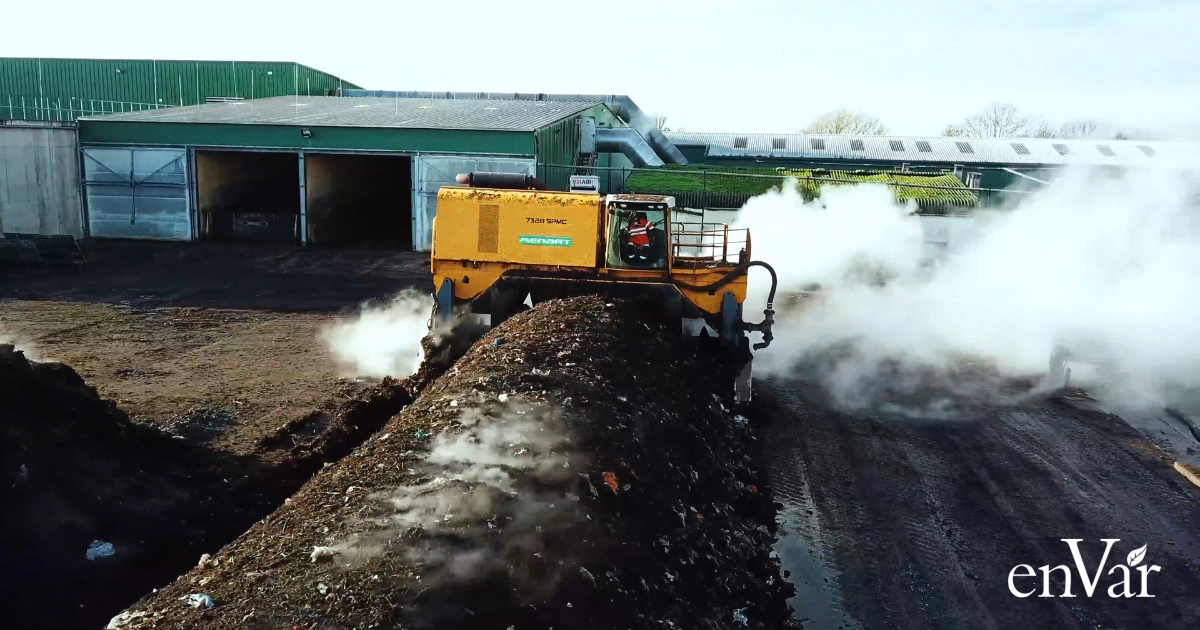Composting provides a safe and sustainable way to process and recycle green garden wastes such as grass, leaves, and tree cuttings, and household food and kitchen waste such as fruit, vegetables, bakery, dairy, fish and meat.
At all of our sites green garden wastes are processed to produce a soil improver using the open windrow system.
Food and kitchen waste must be composted using a safe in-vessel composting system to comply with strict UK Government Animal By-Products Regulations (ABPR) – this system is currently used at Envar’s flagship site in Cambridgeshire.
This waste is processed to produce a peat-free compost soil improver used by a variety of end users.
Bulk bags of our soil improver can be ordered from our shop along with a choice of woodland garden mulch and decorative garden mulch.

Soil improver benefits include:
- Carbon Sequestration (helping carbon to be stored in the soil)
- Reduces reliance on peat
- Soil health optimisation
- Slow release of macro and micro-nutrients
- Improvement in soil structure and rooting potential
- Increased moisture retention and soil drainage
- Good source of organic matter, with average dry matter content of in-vessel compost 75%
Green compost produced in open windrows offers the same benefits, but is also eligible for use in organic systems, and with average dry matter content of 57%.
Waste to Compost Process
1. Organic waste delivered to Envar is weighed and visual check undertaken.
4. Over a period of 7 to 10 days, temperatures of 60°C are achieved & sustained for at least twenty four hours. Procedure is managed at all times to comply with ABPR and ensures the destruction of any weed seeds & pathogens in the material.
2. Incoming material streams are then shredded and blended to produce a homogenous mix for composting.
5. Product is moved from the IVC bunkers to nearby maturation windrows where the material is left to mature further. During this phase, (8 & 12 weeks), the product remains carefully monitored to ensure optimum temperature & moisture content.
3. Blended material is loaded into one of the enclosed in-vessel bunker systems complete with aeration system, temperature control & wireless data logging probes. Decomposition is carefully controlled to ensure EU composting standards are met.
6. After screening and grading, the result is a range of stabilised, nutrient-rich, peat-free products suitable for use as soil improver, mulch, compost or soil replacement material.
End users of our soil improver
The compost soil improver produced by Envar is used by a range of end users including:
- Leisure gardeners
- Allotments
- Farmers
- Horticulturalists
- Viticulturalists
- Soil blenders
- Commercial gardeners
- Sport & amenity sector
- Home builders
Video showing the composting process

